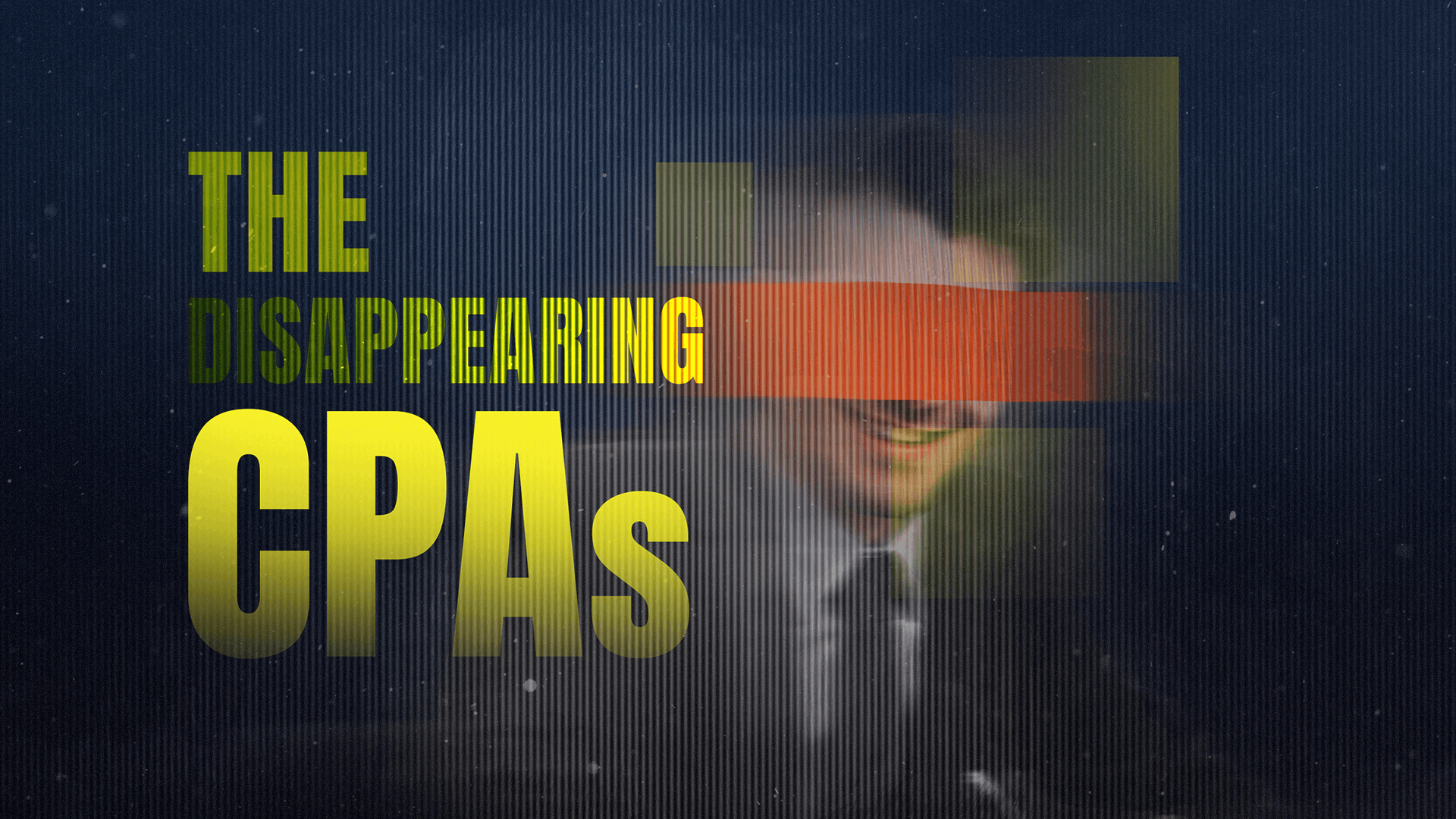The Curious Case of the Disappearing CPAs
Aug 2, 2024

The Curious Case of the Disappearing CPAs
The US has experienced periodic labor shortages in different fields ever since the late 1800s, across the two World Wars, and even during the post-war economic boom of the 1950s and 1960s.
But nothing has been as severe as the current shortage of certified public accountants.
According to a report cited by Bloomberg News, the number of accounting jobs posted on the student placement site Handshake is second only to general administrative support roles.
According to the US Bureau of Labor Statistics, that’s twice as many open CPA positions as in 2020 - a total shortage of 340,000 accountants.
A shortfall of that size is bound to blow a gasket somewhere in the works, and it has.
Multiple times!
Lyft, Planet Fitness, Mister Carwash, and Rivian Automotive are some high-profile companies that have had to revise their quarterly earnings statements due to serious accounting errors.
Although it’s not clear what caused each individual blunder (Lyft blamed it on a ‘clerical error’), there’s no denying these events had something to do with the CPA shortage. Increasing hours and workloads for working accountants heighten the risks of burnout and errors.
The reason for the errors notwithstanding, we must understand the reasons behind the CPA shortage in the first place.
The Reasons Behind the Shortage
Let’s start with the obvious facts.
Experienced CPAs are at the end of their careers. According to the AICPA, 75% of its members are at retirement age.
Students aren’t rushing in to major in accounting despite the huge number of open positions.
The fact of superannuating CPAs is an inevitability that cannot be dealt with. As such, it’s the second fact of student disinterest in accounting that we must look into.
The 150-Hour Rule: Earning a CPA license takes 150 semester hours of education. That’s five years of college, instead of the standard four years, or 120 hours, for other disciplines. With tuition costs rising steadily every year, the cost-benefit analysis of a five-year education doesn’t make sense anymore for many students.
Lower Compensation: The median annual salary for an entry-level accounting job in the US was $62,500 in 2023. Compare that to the median annual wage for an entry-level management consultant ($70,000) or financial analyst ($75,000), and you know why an accounting career is not at the top of the list of priorities for most college students.
Stereotypes and Misperceptions: The accounting profession has always had an image problem, with many viewing CPAs as boring white-collar workers adding up numbers in dingy back offices.
A few other reasons are also frequently cited to explain the current CPA shortage, including the perception that accounting is a highly specialized role and the apparent lack of diversity in the profession.
Without going into the merits of these problems in detail, let’s get to the solutions side of the issue.
Long-Term Fixes
Here are a few steps that make sense:
Dropping the 150-hour rule and reducing the time and cost of education, given that studies have shown the extra hours do not necessarily lead to better accountants, but do disadvantage minority candidates.
Enhancing employee experiences for CPAs by making workloads more manageable, offsetting wage stagnation, and opening up prospects for meaningful career advancement.
Encourage CPA mobility within the US through a framework of inter-state cooperation that allows accountants to work outside their state of residence without obtaining additional licensing.
Changing the narrative about the profession by highlighting how working in accounting can open doors to a financially rewarding and fulfilling career that can impact business outcomes at both local and global levels.
An Immediate Solution
The hope is that in the long term, the above steps will cumulatively but gradually ease out the crisis brought on by the severe shortage of CPAs.
The operative part of that expectation, however, is ‘long-term’.
As far as the immediate or short-term outlook goes, there aren’t any silver linings worth mentioning.
Except for remote teams!
Outsourced accountants can help corporations and small businesses alike tide over skill gaps by offering access to a consistent and reliable pool of international talent.
Companies across the US are already leveraging remote teams to work around the CPA shortage and increase workforce capacity. All while saving thousands of dollars annually in sourcing, hiring, and salary costs.
Maybe it’s time you did the same!
